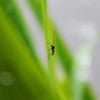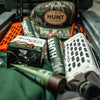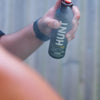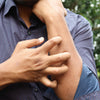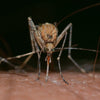The Hidden Dangers of DEET: How It Affects Golf Courses and Your Skin

For many golfers, enjoying a day on the course means not only focusing on their game but also protecting themselves from insects. However, the insect repellent you’re using might not be as harmless as you think. DEET (N,N-diethyl-meta-toluamide), the active ingredient in many popular repellents, can have unexpected consequences—not just for your skin, but also for the environment, including the grass on golf courses.
In this blog post, we’ll dive into how DEET can kill grass on golf courses and why it’s important to be aware of its potential harm to your skin. We’ll also introduce Hunt Repellent, a safer alternative that offers effective protection without the negative side effects.
DEET and Its Impact on Grass
While DEET is known for its effectiveness in repelling mosquitoes, ticks, and other insects, it can also have harmful effects on the environment, especially on turf grass. Golf courses, with their carefully manicured greens and fairways, are particularly vulnerable.
When golfers apply DEET-based repellents and then walk or sit on the grass, traces of the chemical can seep into the soil. Over time, this can cause damage to the grass. DEET is toxic to plants, and even small amounts can disrupt the grass’s ability to photosynthesize, leading to yellowing, wilting, and eventually the death of the grass. On a golf course, where maintaining healthy turf is essential, this damage can be costly and require extensive repairs.
DEET and Its Harmful Effects on Skin
While DEET is effective at keeping insects away, it comes with its own set of health risks, particularly when used frequently or in high concentrations. DEET can be harsh on the skin, and prolonged use can lead to irritation, rashes, and allergic reactions. For sensitive skin, DEET may cause burning sensations, redness, or blistering.
Even more concerning is that DEET has been linked to other health risks. Research has suggested that prolonged exposure to DEET, especially in large amounts, can lead to neurotoxic effects, including dizziness, headaches, and in rare cases, more serious symptoms like seizures. It’s important to be mindful of how much DEET you’re using, as it may not just be your skin that suffers—over time, the chemical can build up in your body.
A Safer Alternative: Hunt Repellent
If you’re concerned about the effects of DEET on your skin and the environment, Hunt Repellent offers a safer alternative. Hunt Repellent uses Picaridin, a highly effective insect repellent that works just as well as DEET but without the harmful side effects.
Unlike DEET, Picaridin is not harsh on the skin. It’s known for being gentle, providing long-lasting protection against mosquitoes, ticks, and other biting insects without causing irritation. It’s also non-greasy, making it comfortable to wear for long hours on the course.
What’s more, Picaridin doesn’t have the same negative impact on the environment as DEET. It won’t damage grass or other plants, making it a safer choice for golf courses and outdoor enthusiasts alike.
Conclusion
While DEET-based insect repellents may seem like a quick fix for protecting yourself from bugs, they come with significant drawbacks. From killing grass on golf courses to potentially harming your skin, DEET is not the ideal solution for those who want to enjoy the outdoors while maintaining their health and the environment.
Hunt Repellent, with its Picaridin-based formula, is a safer, more effective alternative. It offers excellent insect protection without the harmful side effects, keeping you and the environment safe while you enjoy your outdoor activities. The next time you’re headed out to the golf course, choose Hunt Repellent for a better balance of efficacy, safety, and user-friendliness.
-
Posted in
Deet Free, golf, Grass, Hunting, Safe Alternative, Scent Free, Skin
